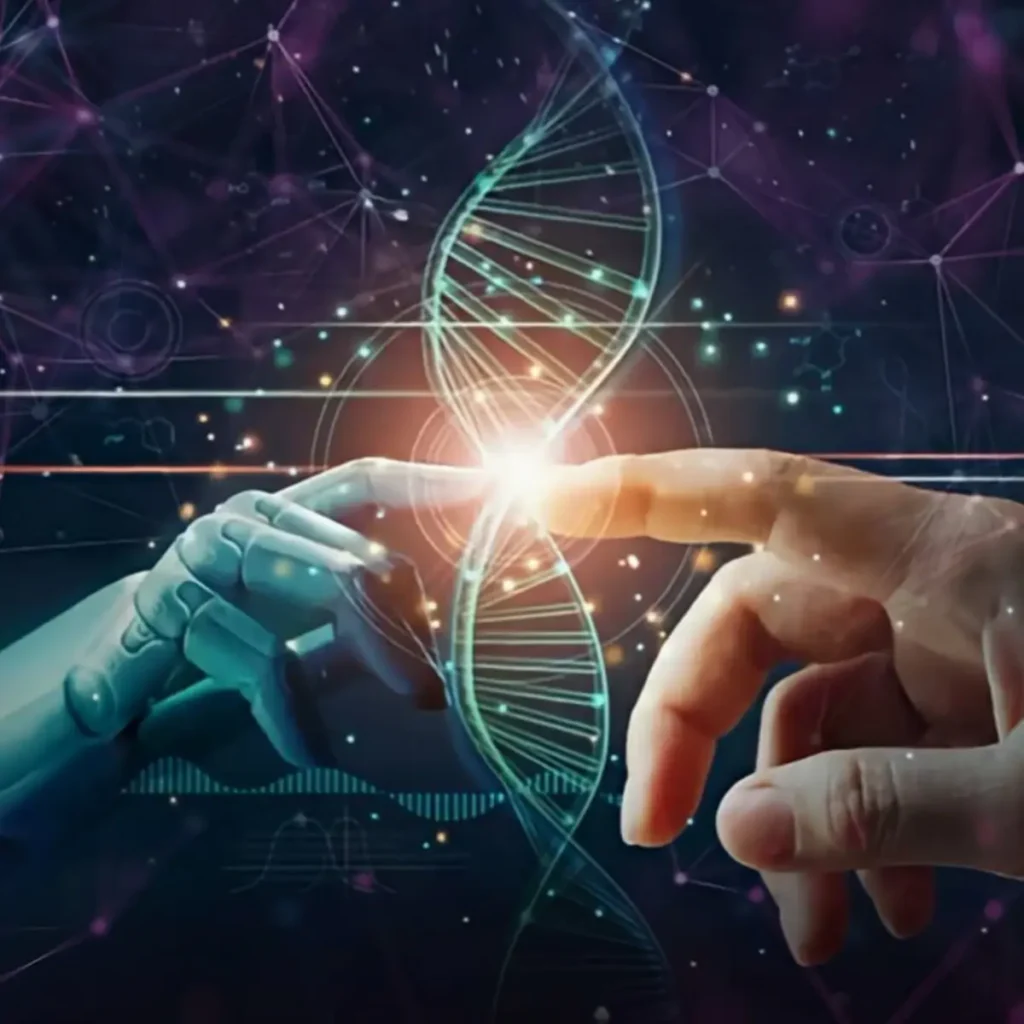Introduction
Understanding the enigmatic realm of human consciousness has been a pursuit that has fascinated scholars, philosophers, and scientists for centuries. In this article, we embark on a journey to unravel the mysteries behind the essence of human consciousness and delve into its multifaceted nature.

Table of Contents
What is Consciousness?
Defining the Indefinable
Consciousness, in its essence, is the state of being aware of and able to think about one’s own existence, sensations, thoughts, and surroundings. It’s the subjective experience of being alive and aware. Imagine it as the spotlight of attention, illuminating the stage of our minds where thoughts, feelings, and perceptions take center stage.
This elusive concept has intrigued scholars, philosophers, and scientists for centuries, yet a universally agreed-upon definition remains elusive. Some describe it as a continuous stream of thoughts and sensations, while others emphasize self-awareness and the ability to reflect on one’s own mental state.
In the vast landscape of human experience, human consciousness is the beacon that lights the way, allowing us to navigate, interpret, and interact with the world around us. It’s the canvas on which our perceptions, emotions, and thoughts are painted, creating a rich tapestry of individual experiences.
To understand human consciousness is to embark on a journey into the inner workings of the mind, exploring the intricate dance of neurons, the mysteries of dreams, and the profound impact of meditation. It’s a topic that transcends the boundaries of science, delving into philosophy, psychology, and even the realms of spirituality.
In essence, consciousness is the thread that weaves the narrative of our lives—a constant companion that shapes our understanding of reality and defines what it means to be human.
The Conscious Brain
Neurons and Beyond
The Conscious Brain: Neurons and Beyond
The human brain, a marvel of evolution, is the epicenter of human consciousness. To understand the intricacies of consciousness, we must embark on a journey into the neural symphony that orchestrates our thoughts, perceptions, and self-awareness.
Neurons: The Building Blocks
At the core of the conscious brain are neurons, the fundamental building blocks of the nervous system. Billions of these specialized cells form a vast network, communicating through electrical impulses and chemical signals. This intricate dance of neurons creates the foundation of our cognitive experience.
Neural Pathways: Connecting the Dots
Imagine neural pathways as the roads within the brain, facilitating communication between different regions. These pathways allow for the seamless flow of information, enabling us to process sensory input, form memories, and engage in complex thought processes.
The Role of Synapses
Synapses act as bridges between neurons, where information is transmitted through neurotransmitters. This synaptic communication is fundamental to our ability to learn, remember, and react to the world around us. The plasticity of synapses allows the brain to adapt and change, shaping our evolving human consciousness.
Consciousness Emerges
While the exact mechanisms of human consciousness remain elusive, scientists believe it arises from the synchronized activity of widespread neural networks. As different regions of the brain communicate, a coherent and unified conscious experience emerges—a continuous stream of thoughts, perceptions, and self-awareness.
Brain Regions and Conscious Functions
Various brain regions contribute to specific conscious functions. The prefrontal cortex, for example, is associated with higher-order thinking, decision-making, and self-awareness. The limbic system, on the other hand, plays a crucial role in emotions and memory. Understanding these regions provides insights into the diverse facets of human consciousness.
Altered States and Brain Activity
Exploring altered states of consciousness, such as during meditation or sleep, unveils shifts in brain activity. Researchers observe changes in patterns of neural oscillations, shedding light on the dynamic nature of human consciousness and the brain’s adaptability.
The Unconscious Influences
Beyond the conscious realm, the brain harbors the subconscious—an influential force shaping behavior and perceptions. The interplay between conscious and unconscious processes adds layers of complexity to the understanding of the conscious brain.
In unraveling the mysteries of the conscious brain, we navigate a landscape where science meets philosophy. The journey into neural intricacies not only deepens our comprehension of human consciousness but also raises profound questions about the nature of self-awareness, free will, and the essence of the human mind.
Levels of Human Consciousness
Wakefulness, Awareness, and Beyond
Levels of Consciousness: Wakefulness, Awareness, and Beyond
Delving into the depths of human consciousness unveils a fascinating spectrum of awareness, from the waking state to altered realms that transcend the ordinary. Let’s explore the intricate levels that define our conscious experience.
Wakefulness: The Foundation
At the foundational level is wakefulness, our default state of consciousness when we are alert and responsive to the external world. During wakefulness, our senses are engaged, and our minds actively process information, shaping our immediate reality.
Everyday Awareness
Moving beyond mere wakefulness, everyday awareness encompasses our ability to focus attention, make decisions, and engage in routine activities. It’s the state in which we navigate the demands of daily life, from work tasks to social interactions, with a conscious and purposeful mind.
Altered States: A Glimpse Beyond
Altered states of consciousness offer a departure from the ordinary. This category includes various experiences, such as daydreaming, meditation, or even the trance-like states induced by certain substances. In these states, the usual boundaries of perception and awareness are stretched, providing unique insights into the flexibility of consciousness.
Sleep and Dreams
Venturing further, sleep introduces us to a realm where consciousness takes on a different guise. Dreams, vivid and often surreal, unfold as our minds explore scenarios disconnected from waking reality. The study of dreams unravels the mysterious interplay between consciousness and the subconscious during the sleep cycle.
Lucid Dreaming: Conscious Control
A fascinating subset of dreaming is lucid dreaming, where the dreamer becomes aware of the dream state and may even exert conscious control over the narrative. This phenomenon showcases the adaptability and malleability of consciousness, even within the confines of the dream world.
Altered States through Meditation
Meditation, a practice embraced across cultures and centuries, introduces altered states of consciousness through focused attention and mindfulness. It offers a pathway to explore heightened awareness, inner tranquility, and a connection to a deeper dimension of the self.
Transcendent Experiences
Some individuals report transcendent experiences that defy conventional explanation. These may include moments of profound insight, spiritual awakening, or a sense of unity with the cosmos. Exploring these experiences expands our understanding of consciousness beyond the boundaries of the individual self.
Anesthetic Induced Unconsciousness
In contrast, the administration of anesthesia induces a temporary state of unconsciousness, highlighting the delicate balance between neural activity and the absence of conscious experience. The study of such states provides valuable insights into the mechanisms that underlie consciousness.
Levels of Awareness in Brain-Injured Patients
The examination of consciousness extends to patients with brain injuries, where varying levels of awareness and responsiveness present a complex puzzle. Understanding how consciousness manifests in these cases informs both medical interventions and philosophical inquiries into the nature of consciousness.
Navigating the levels of consciousness is akin to exploring different landscapes of the mind—each revealing unique facets of human experience. Whether in the wakeful embrace of reality or the dream-laden realms of sleep, our journey through these levels adds depth to the tapestry of consciousness that defines our existence.
The Subconscious Mind
Unraveling Hidden Realms
Peek into the depths of the subconscious mind, exploring how it influences our thoughts, behaviors, and decision-making processes.
Dreams and Consciousness
The Theater of the Unconscious
Navigate through the world of dreams as a window into the subconscious, deciphering the connection between dreaming and consciousness.
Cultural Perspectives on Consciousness
Diverse Insights
Take a cultural perspective, examining how different societies and belief systems interpret and value consciousness.
The Philosophical Debate
Dualism vs. Materialism
Engage in the age-old philosophical debate surrounding consciousness, weighing the arguments of dualism and materialism.
Human Consciousness and Artificial Intelligence Consciousness
Can Machines Be Conscious?
Scrutinize the intersection of technology and consciousness, exploring the ethical implications of artificial intelligence and its potential sentience.
The Impact of Meditation on Human Consciousness
Ancient Wisdom Meets Modern Science
Explore the transformative effects of meditation on consciousness, merging ancient practices with contemporary scientific understanding.
Altered States of Human Consciousness
From Psychedelics to Meditation
Dive into the world of altered states, examining the impact of substances like psychedelics and practices like meditation on consciousness.
The Quantum Consciousness Hypothesis
Beyond the Material World
Embark on a journey into the realm of quantum physics, exploring the hypothesis that consciousness transcends the materialistic view.
Challenges in Studying Consciousness
The Uncharted Territory
Uncover the obstacles faced by researchers in studying consciousness, from the lack of objective measures to the subjective nature of experience.
Future Perspectives on Understanding Consciousness
A Glimpse into Tomorrow
Peek into the future of consciousness studies, exploring emerging technologies and evolving perspectives that may reshape our understanding.
Conclusion
In conclusion, the exploration of human consciousness is a continuous journey with twists and turns, promising new revelations and challenges. As we strive to unravel the mysteries within, one thing remains certain – the enigma of consciousness continues to captivate our minds.
FAQs About Human Consciousness
- Is consciousness the same as awareness?
- No, consciousness refers to the overall state of being aware, while awareness is a component of consciousness.
- Can machines achieve true consciousness?
- The debate is ongoing, with ethical and philosophical considerations shaping the discourse on artificial intelligence and consciousness.
- How does meditation alter consciousness?
- Meditation is believed to induce altered states of consciousness by quieting the mind and fostering heightened awareness.
- What role do dreams play in understanding consciousness?
- Dreams offer a unique window into the subconscious mind, providing insights into the workings of consciousness during sleep.
- Is there a scientific explanation for consciousness?
- While progress is being made, the scientific community is still grappling with the elusive nature of consciousness, and a definitive explanation remains elusive.









